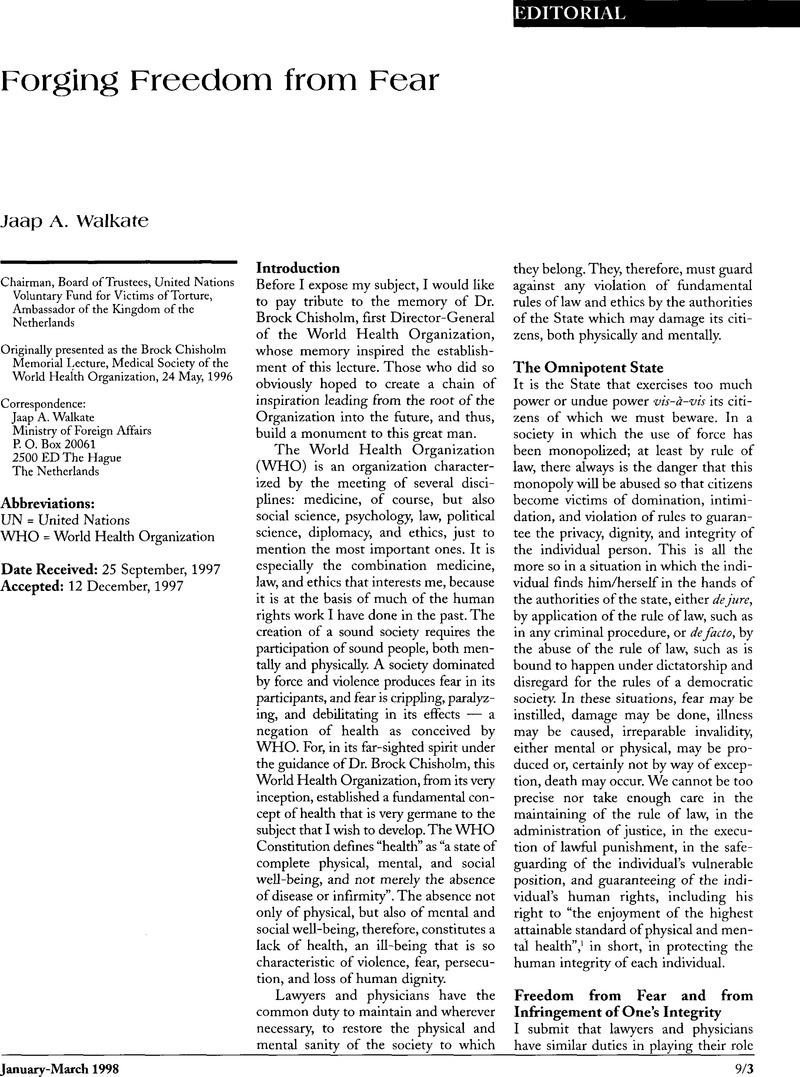No CrossRef data available.
Article contents
Forging Freedom from Fear
Published online by Cambridge University Press: 28 June 2012
Abstract
An abstract is not available for this content so a preview has been provided. As you have access to this content, a full PDF is available via the ‘Save PDF’ action button.

- Type
- Editorial
- Information
- Copyright
- Copyright © World Association for Disaster and Emergency Medicine 1998
References
1. United Nations: International Covenant on Economic, Social and Cultural Rights. United Nations: New York, 16 December 1966. Article 12, paragraph 1Google Scholar
2. Kelman, HC: The Social Context of Torture: Policy Process and Authority Structure. In: Crelinsten, RD, Schmid, AP (eds), The Politics of Pain :Center for the Study of Social Conflict, Leiden 1993, p 23.Google Scholar
3. United Nations: International Covenant on Civil and Political Rights. United Nations: New York, 16 December 1966. Article 4, paragraphs 1 and 2.Google Scholar
4. United Nations: General Comment no. 7: Report to the UN General Assembly, UN: Doc. A/37/40. 1982.Google Scholar
5. United Nations: General Assembly Resolution 37/194, Principle 2, United Nations: New York, 18 December 1982.Google Scholar
7. This phrase was coined by Professor van Asbeck, professor of international law at the University of Leyden in the 1950's.Google Scholar
8. United Nations: Resolution 47/133 Article 18, paragraph 1, United Nations: New York, 18 December 1992, reads: “Persons who have or are alleged to have committed offenses (acts of enforced disappearance) shall not benefit from any special amnesty law or similar measures that might have the effect of exempting.them from any criminal proceedings or sanction.”Google Scholar
9. United Nations: International Covenant on Civil and Political Rights. Article 9, paragraph 5. United Nations: New York. 16 December 1966. “Anyone who has been victim of unlawful arrest or detention shall have an enforceable right to compensation.” The Human Rights Committee which monitors the implementation of the Covenant has at several occasions upheld this right to compensation and implored the defending State to provide for an adequate remedy.Google Scholar
10. United Nations: Convention against Torture, UNGA: Resolution 39/46, Article 14. United Nations: New York. 10 December, 1984: requires that the State Party ensure in its legal system that the victim of an act of torture obtains redress and has an enforceable right to fair and adequate compensation.Google Scholar


